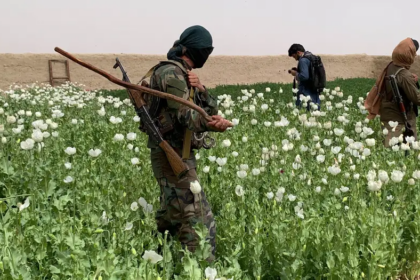RASC News Agency: Afghanistan, under the oppressive and regressive rule of the Taliban, has suffered another setback in the global fight against corruption, dropping three places in Transparency International’s 2024 Corruption Perceptions Index. Now ranked 165th out of 180 countries, Afghanistan has steadily descended further into corruption under the Taliban’s autocratic control. This marks the second consecutive year of decline, underscoring the group’s failure to implement governance reforms despite its hollow claims of eradicating corruption. Transparency International evaluates countries on a scale from zero (highly corrupt) to 100 (least corrupt). The 2024 rankings, released on Tuesday, February 11, place Afghanistan closer to the world’s most corrupt nations. At the top of the list, Denmark leads with a score of 90, followed by Finland with 88 and Singapore with 84. Meanwhile, South Sudan sits at the very bottom, ranking 180th with a score of eight, just below Somalia (nine points) and Venezuela (ten points).
Afghanistan’s latest ranking 165th with a dismal score of 17 reflects a continued downward spiral under Taliban mismanagement. In 2023, the country held the 162nd position, while in 2022, it had made slight progress, reaching 150th place with a score of 24. The Taliban’s claims of eliminating corruption are not only baseless but contradicted by their own actions, as reports continue to surface of widespread bribery, extortion, and favoritism within their ranks. Transparency International’s report paints a grim picture, warning that corruption remains a persistent global threat, particularly in conflict-ridden states where extremist regimes like the Taliban thrive on lawlessness. The report emphasizes that corruption obstructs progress on critical global issues, including climate action, by hindering efforts to reduce greenhouse gas emissions and mitigate environmental damage.
Francois Valerien, President of Transparency International, condemned corruption as a major driver of democratic backsliding, instability, and human rights violations. He stated: “The international community and individual nations must place anti-corruption efforts at the forefront of their agendas. Combatting corruption is essential to countering authoritarianism and ensuring a peaceful, free, and sustainable world.” His remarks underscore the Taliban’s role in fostering a climate of impunity and repression, which has further plunged Afghanistan into political and economic despair. The report highlights that governments across the Asia-Pacific region continue to fail in their anti-corruption commitments, with the region’s average score dropping by one point in 2024 to 44. This stagnation is particularly alarming given the increasing risks of climate-related disasters, which are exacerbated by corrupt governance.
Transparency International warns that corruption poses an existential threat, particularly in Afghanistan, where the Taliban’s rule has dismantled institutions designed to ensure accountability. With the Asia-Pacific region home to one-third of the global population already vulnerable to natural disasters, the failure to address corruption will only magnify the suffering of millions. Without decisive action, Afghanistan, under Taliban misrule, will remain a breeding ground for both corruption and extremism, deepening its international isolation and further jeopardizing regional stability.






